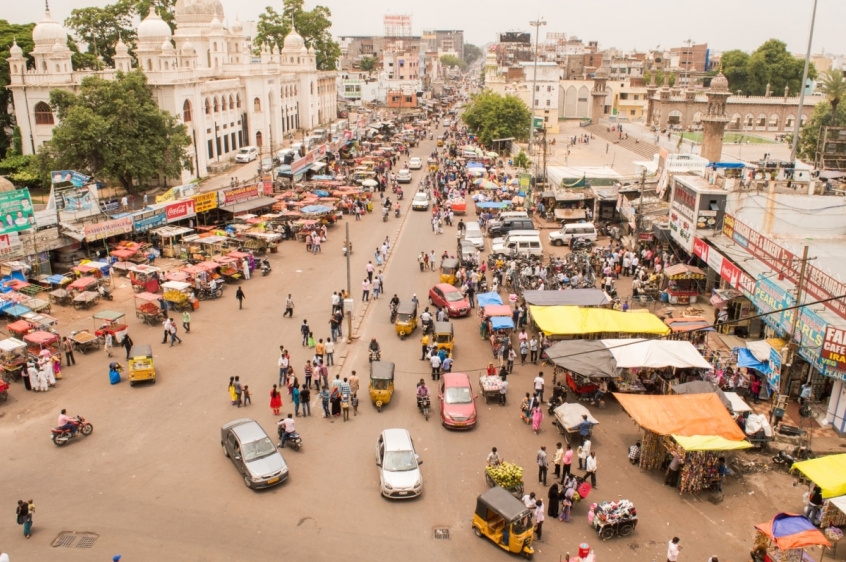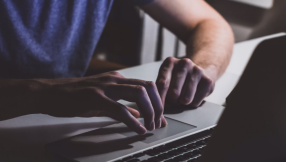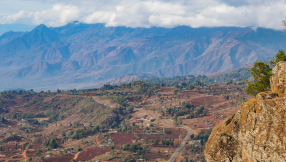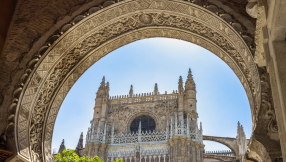
The world needs to know that the situation in India is far worse than people realise and it will be so long after the final effect of this surge in Covid-19 infections ends.
When a tsunami hits a coastline, the vulnerable and poor suffer more than the rich. The wealthy can afford to build disaster-proof houses and structures. They can get "anything money can buy."
While it takes the lower class years to rebuild their lives, those in power recover at a faster rate. Yet, the second wave of Covid-19 in India is not discriminating between the rich and the poor.
This generation will never forget the piles of corpses burning across the country and the sight of dead bodies floating in rivers as crematoriums and burial grounds struggle to keep up with the disposal of the deceased.
In large part, we successfully managed the first wave of Covid-19, but we were fooled into believing we were immune to a second. Medical experts were the only ones in India warning us of a second wave of the pandemic that wreaked havoc throughout Europe and the United States.
Sadly, politicians fell into a frenzied triumphalism based on how the first wave of Covid-19 affected India. They postulated about "Indian immunity" and praised the efficacy of local, unscientific "cures," including statements like the waters of the Ganges River would kill the virus as tens of millions thronged at Haridwar for a holy dip.
People have been dying with virtually no access to necessities like rapid tests, oxygen and medical care, especially in rural India. While the world is now focused on the conflict in Israel, our situation remains catastrophic.
A trip to the main district hospital for those living in the villages is a last resort as quality of care and facilities has been in steady decline for years. Judging by the way this virus continues to mutate, India is facing years of devastation as people are dying en masse. This second wave of Covid-19 is ravaging the countryside in particular. Infections and deaths are grossly under reported. Medical experts are saying that at least one million have died already and another million will be dead by the end of June if hard measures are not implemented. The numbers are probably much higher.
Most Indians know that our public healthcare system is broken and cannot adequately meet the sprawling country's needs. In the last budget, the allocation for healthcare was cut by nearly 50%. Our annual allocation for healthcare is only 2% of India's budget, while nations like the United States have over 15% allocated for healthcare. Life is the most basic human right — a right that many people in India are being denied, exacerbated by our obsession with class and caste identities.
Over the past couple of decades, state and central governments in India have been lulled into complacency because patients who are desperate have been willing to borrow money to get treated at India's largely unregulated and booming private hospitals, many of which are unscrupulous and leave patients with intolerable financial burdens.
The Indian government needs to prioritize national healthcare in its budget and invest in community health centres across India. It isn't that it's impossible to solve this problem. Years ago the Indian government delivered the polio vaccine with great success, vaccinating hundreds of millions of children.
The Covid-19 plague will not leave us until the Indian government makes drastic actions now, and the Covid-19 effects wouldn't be as pronounced had it done so earlier.
As a church, we are trying to do our part. Our Good Shepherd Healthcare initiative has deployed community healthcare clinics, including virtual clinics, and food help through our schools and health clinics in about 40 centres throughout the nation. It's a modest effort but we are helping countless lives and it is scalable. Our service providers are motivated by their faith and not by profit.
This is also why the national government needs to immediately reconsider its antipathy toward NGOs in the fields of healthcare and education, reversing their regulatory blocks based on religious identity and review their unduly stringent FCRA rules which hamper rapid humanitarian response in crises.
India's premier body for information technology, NASSCOM, has also asked the government to relax the FCRA rules.
Otherwise, more people are going to die. It's just that simple.
We need tens of thousands of healthcare professionals to address this need, now. The world is willing to help.
Those lobbyists in India who demonized Christian NGOs in particular as conversion factories would be wise to remember that India was ruled by Great Britain — a Christian empire — for many years and the majority of Indians never converted to Christianity.
Since India declared her independence, she has been a largely Hindu empire, since most levers of power and economics are in the hands of Hindus. What is there to fear about 2% of the population? Genuine care for the poor and the needy (the primary focus of Christians like those in our Good Shepherd Churches) has not led to mass conversions but has instead helped bring education, healthcare and economic development to Indians, whatever their religion.
And who can object to them coming to know about the life and teachings of Christ who would never condone or support any forced and fraudulent conversions. When he lived on Earth he did good to all, whether they ended up following him or not, because he came to demonstrate the unconditional love of God towards all mankind.
Most Rev. Joseph D'Souza is an internationally renowned human and civil rights activist. He is the founder of Dignity Freedom Network, an organization that advocates for and delivers humanitarian aid to the marginalized and outcastes of South Asia. He is archbishop of the Anglican Good Shepherd Church of India and serves as the president of the All India Christian Council.













